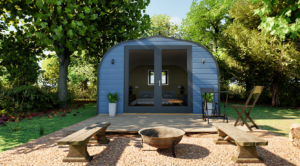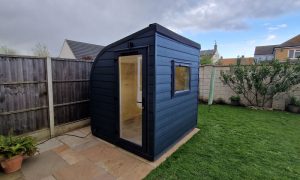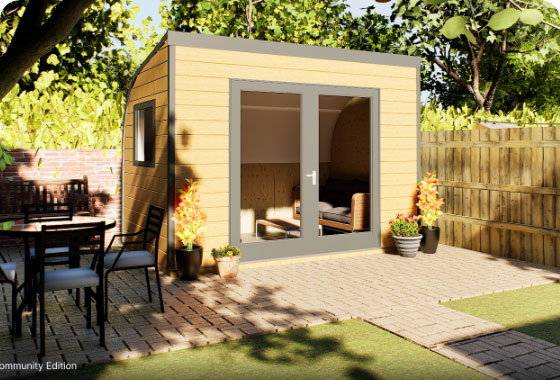
Garden Office Wellbeing: How Nature Boosts Productivity and Mental Health
The Growing Importance of Workplace Wellbeing
Wellbeing, work-life balance, and self-happiness are rapidly becoming key goals. Both employees and employers now prioritise these factors.
The Chartered Institute of Personnel and Development conducted pre-pandemic surveys. They found stress, depression, and anxiety caused 44% of ill health cases. These issues also resulted in 54% of working days lost.
Poor wellbeing and mental health create serious problems. High staff turnover increases. Presenteeism becomes more common. Employee engagement drops significantly.
The Science Behind Nature and Productivity
Scientific evidence clearly shows the benefits of nature. Spending time in natural environments whilst working improves physical health. It also significantly boosts mental health.
Recent Research Findings
In June 2022, the Malaysian Journal of Sustainable Environment published important research. The study identified improvements in productivity and emotions. Cognitive functions improved. Stress reduced. Wellbeing increased.
The Journal of Cleaner Production published compelling evidence. Direct views of natural, green scenes significantly improved wellbeing. This was compared to urban scenes. Employees in natural settings were less distracted than those viewing cityscapes.
A noteworthy study was published in October 2021. It appeared in the Journal of Environmental Psychology. Researchers used stress sensors worn on wrists. They conducted daily surveys and scheduled tasks. The results were striking.
Stress levels reduced dramatically in natural, green environments. Employees were happier. Their cognitive performance improved significantly.
Biophilia: Our Innate Connection to Nature
Psychologists believe humans have an innate drive. We naturally want to connect with all living things. They have a specific term for this phenomenon.
As early as 1941, German psychologist Erich Fromm explored this concept. He had fled the Nazi regime to the US. He described nature’s importance to humans as a “primary tie”.
Edward Wilson popularised this idea in his 1984 book. He coined the term biophilia. This describes how humans are genetically predetermined to be attracted to nature. Evolution drives this attraction.
Wilson suggested our love of flowers has deeper meaning. It’s not just about their look and smell. Flowers signal that fruit will soon follow.
Biophilic Design in Garden Office Pods
A garden office brings your workplace to nature. This simple change improves wellbeing and productivity. My Garden Studio implements biophilic design impressively.
Natural Light and Connection to Outdoors
Our garden office pods feature oversized doors and windows. These maximise natural light. They strengthen your connection to the outdoors.
Curved walls infer movement and natural shape. This positively reinforces organic, natural elements.
Airflow and Outdoor Feeling
Fully adjustable UPVC windows and doors create airflow. This works regardless of the weather. It encourages an outdoor feeling.
The pod design sits closely to established trees or shrubs. It feels as if the outside is being brought in.
Natural Materials for Stress Reduction
Natural wood interior walls benefit stress levels. They increase comfort due to their natural state. Our high-quality birch plywood finishes maintain that connection. They provide a warm, comfortable workspace.
The Benefits of a Garden Office for Mental Health
Psychologists and scientists agree on one thing. Being close to nature benefits wellbeing and productivity.
Most employees normally work in urban settings. A move to a garden office brings greater impact. Your wellbeing and happiness improve more than you might expect.
Key Wellbeing Benefits:
- Reduced stress levels: Natural green views significantly lower workplace stress
- Improved cognitive performance: Better focus and decision-making abilities
- Increased productivity: Less distraction than urban environments
- Enhanced mood: Natural light and outdoor connection boost happiness
- Better work-life balance: Separate workspace without lengthy commute
- Year-round comfort: Fully insulated for all-season use
Creating Your Wellbeing Workspace
Our range of garden studios suits every need. From the compact ePod to the spacious eLodge. All are designed with biophilic principles at their core.
Every element works together. The curved design, natural materials, and maximised glazing create something special. They enhance your mental health and productivity.
Our studios include 100mm insulation as standard. WiFi-controlled heating comes included. Full electrics are fitted throughout. You can enjoy working in nature throughout the year. The weather doesn’t matter.
Ready to improve your wellbeing and productivity? Get a free quote today. Discover how a garden office can transform your work life.





